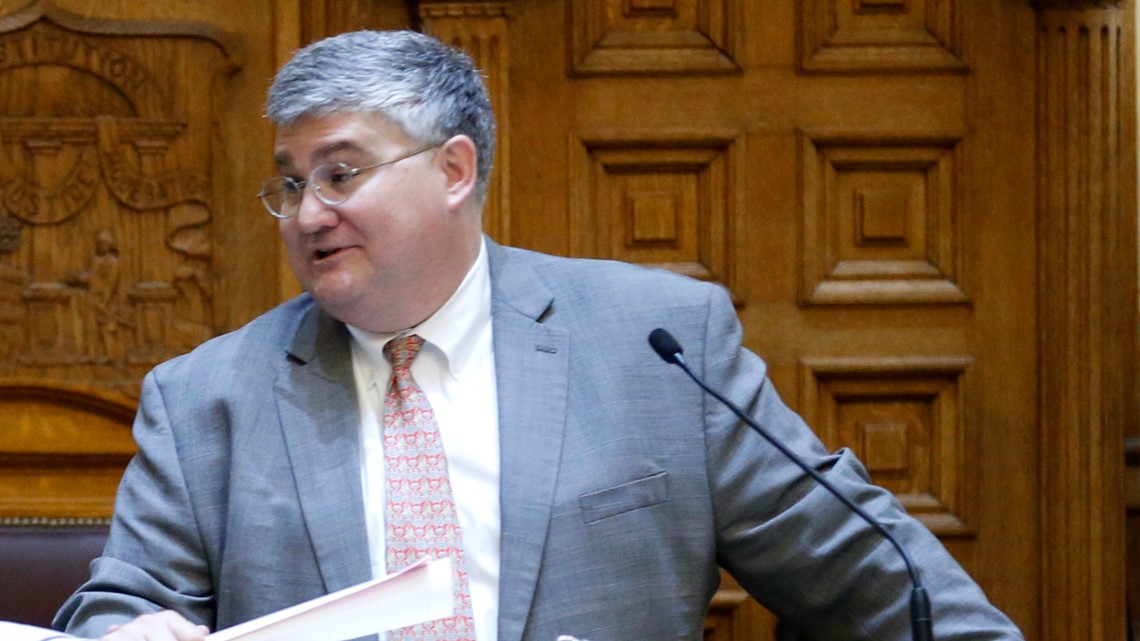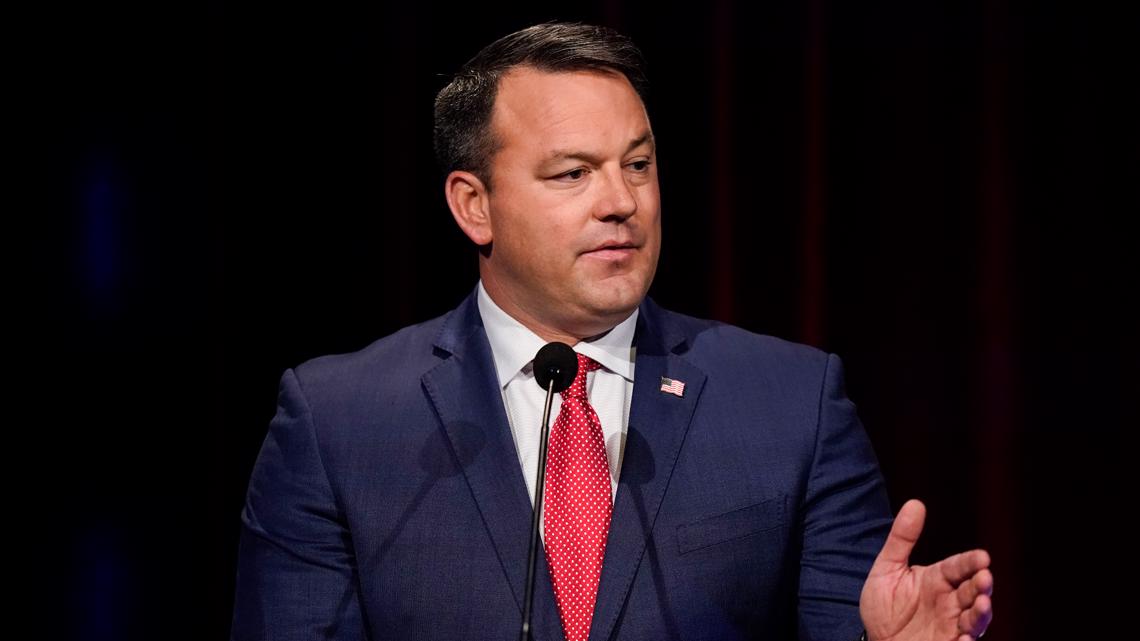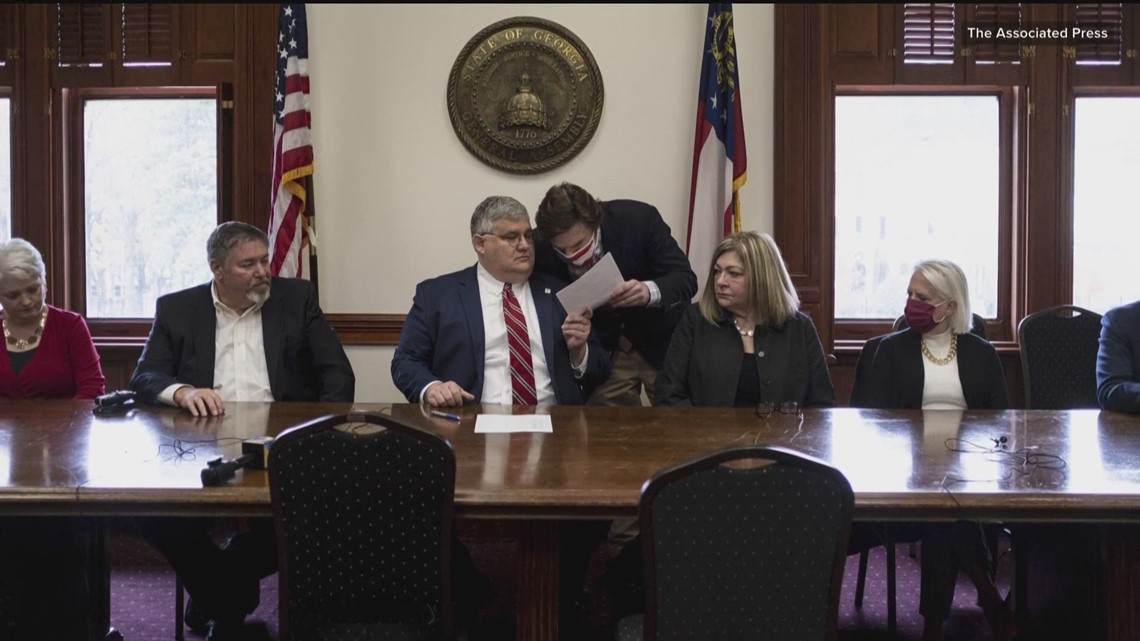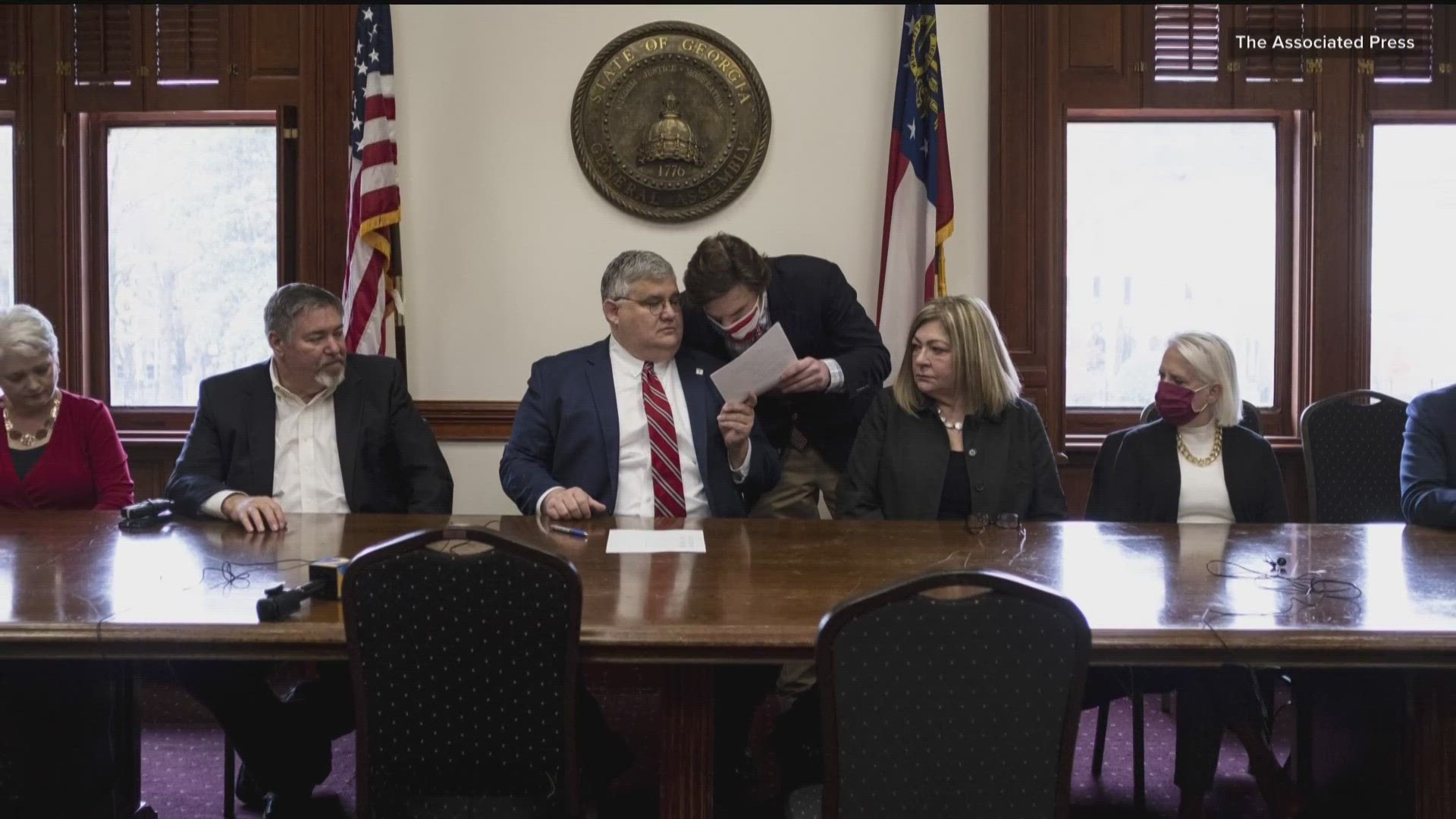ATLANTA — Sixteen Georgia Republicans met inside the state capitol on Dec. 14, 2020, and what happened under the Gold Dome that day has been a topic of interest for Fulton County prosecutors who could criminally charge Donald Trump and his allies.
The group, led by then-GOP chair David Shafer, signed Electoral College documents that falsely claimed Trump won the 2020 election with instructions from his campaign.
As investigative bodies probed Trump’s attempt to hold onto the presidency, the scheme to have Trump supporters pose as presidential electors in battleground states received more attention.
Nearly three years after that meeting, at least half of the Georgia electors have taken immunity deals as part of District Attorney Fani Willis’ investigation into potential election interference. It’s unclear which of them took deals.
Arguments in defense of and against the electors' actions have been made. Some argue the electors committed crimes under state law, including forgery. Others argue the electors were acting under the advice of legal counsel. The electors, they say, acted properly under the circumstances and were constitutionally protected.
Attorneys have argued the electors weren’t aware of Trump’s Jan. 6 plans, and the Georgia Republican party is fundraising for their legal defense.
A Fulton County grand jury will soon decide if any of them will be indicted.


Who are the electors?
The sixteen Republicans who served as Trump electors range from high-ranking party officials to current Georgia senators.
The electors are:
Shafer
Burt Jones: Georgia’s current lieutenant governor, Jones served in the state senate during the 2020 election.
Shawn Still: A current Georgia state senator, Still served as party secretary during the 2020 election.
Cathleen Alston Latham: A retired school teacher, Lathan is the former Coffee County GOP chair. Latham is allegedly involved with the reported copying of election data in Coffee County. That matter is also being investigated by Fulton prosecutors.
Joseph Brannan: The general manager of a Columbus, Georgia, radio station group, Brannan served as party treasurer during the 2020 election.
James "Ken" Carroll: Carroll, who served in various GOP roles over the years, was the state party’s assistant secretary during the 2020 election.
Vikki Townsend Consiglio: A current board member of the Georgia Soil and Water Conservation Commission, Consiglio was the state party’s assistant treasurer during the 2020 election.
Carolyn Hall Fisher: Former chair of the Forsyth County Republican Party, Fisher served as first vice chair of the state party during the 2020 election.
Gloria Kay Godwin: A longtime GOP activist from Blackshear, Georgia.
David G. Hanna: A former CEO.
Mark W. Hennessy: A current appointee to the Board of Natural Resources, Hennessy owns car dealerships.
Mark Amick: A member of the Board of Governors for the Georgia Republican Foundation, Amick has also unsuccessfully ran for Milton City Council.
John Downey
Daryl Moody: The chairman of the Foundation Board of Governors for the Georgia Republican Foundation, Moody is also an attorney.
Brad Carver: An attorney and Republican activist.
C.B. Yadav: A small business owner in coastal Camden County, Yadav serves on the Georgians First Commission under the governor’s office.
A Fulton County Superior Court judge previously ruled that Willis couldn't prosecute Jones because Willis hosted a fundraiser for Jones' Democratic opponent ahead of the November election.
The Prosecuting Attorneys Council of Georgia will determine if Jones should be investigated by a special prosecutor.


What did the electors do?
The 16 Republicans signed Electoral College certificates falsely claiming Trump won the election. Those certificates were submitted to Congress, state officials and the National Archive.
The electors are appointed by the state party. Each presidential elector represents one of the state’s Electoral College votes. In Georgia and most other states, a state’s popular vote result determines which party's electors are sent to the state capitol. Their votes and the documents they sign are counted during a joint session of Congress.
It was similar to plots in other battleground states. The Trump campaign hoped that Vice President Mike Pence would count the Republican slate of electors or reject the Democratic electors. The goal was to keep Trump in the White House.
The Georgia electors were directed to use "complete secrecy" by Robert Sinners, Trump’s election day operations lead in Georgia for 2020. Sinners now serves as a spokesperson for the Georgia Secretary of State’s office.
George Chidi, an independent Atlanta journalist who has been subpoenaed to testify before both Fulton County grand juries meeting this court term, told 11Alive that he stumbled upon the meeting after following one of the GOP's alternate electors into a room.
He said he was kicked out of the room shortly after entering and lied to about the purpose of the meeting.
"I went to the capitol ... because I was concerned after seeing a lot of right-wing extremist activity," he said. "I didn't realize the Republican electors would actually try to meet there."
Legal experts who previously spoke with 11Alive and a report from the Brookings Institute indicate that the electors could face fraud and forgery charges in addition to election-related charges.
However, attorneys for Shafer have argued in recent weeks that the electors' actions were "constitutionally protected."
A legal challenge to Georgia’s election results filed by Trump and Shafer was still pending when the electors met. The Republicans, the attorneys argued in a letter to Willis, were acting under the advice of legal counsel.
Shafer’s actions were protected by the Georgia Constitution as well as the First, Fifth and Fourteenth Amendments to the U.S. Constitution, according to the letter. The attorneys also said the Trump electors were acting in a historically appropriate manner, comparing the situation to the 1960 Democratic electors in Hawaii.
During that race, John Kennedy already won the presidency, but Richard Nixon was declared the winner in Hawaii by 140 votes.
Democrats challenged the results, and a court-ordered recount was ongoing. With the results in question, both electors met and sent their documents to Congress. The recount found that Kennedy won by 115 votes, and the state's electoral votes went to Kennedy.


To date, the Georgia Republican Party has covered the legal fees for the Trump electors.
Last year, the party paid Strickland Debrow of Newnan, GA, about $170,000. Atlanta-based Pierson Law LLC received roughly $52,000 from the Georgia GOP.
Kimberly Debrow represented half of the Trump electors while Pierson represents Shafer.
In recently filed campaign disclosures reviewed by 11Alive, the Georgia Republican Party paid Strickland Debrow nearly $273,000 during the first six months of 2023. Gillen, Withers & Lake received roughly $46,000 over the same period. Gillen and Lake are the other two attorneys representing Shafer.
The party launched a new website defending the electors’ actions. They argue the term “fake elector” is a lie, comparing it to the mythical Loch Ness Monster and Bigfoot.
Visitors to the site are encouraged to donate for the electors’ defense ahead of potential indictments.
Willis is expected to announce potential indictments before Sept. 1. She’s previously hinted that charging decisions will come before Aug. 18.

